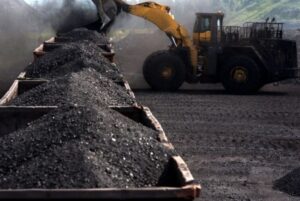
Ukraine in 2024 increased imports of coal and anthracite (HS code 2701) in 2.7 times (by 1 million 145.951 thousand tons) compared to 2023 – up to 1 million 812.592 thousand tons.
According to the State Customs Service, coal was imported for $402.219 million, which is 2.2 times more than in 2023 ($185.378 million).
From the United States came coal worth $98.868 million (share – 24.58%), Australia – $97.794 million (24.31%), Czech Republic – $69.527 million (17.29%), other countries – $136.03 million (33.82%).
Ukraine’s coal exports in 2024 decreased 1.7 times (by 273.353 thousand tons) – to 397.324 thousand tons, in value terms it fell 4.7 times (by $136.325 million) – to $36.366 million,
Including coal shipped to Swedish counterparties for $14.776 mln, to Indian counterparties for $10.421 mln, to Italian counterparties for $5.487 mln, and to others for $5.682 mln.
As reported, Ukraine in 2022 reduced imports of coal and anthracite in 4.2 times (by 14 million 932.904 thousand tons) compared to 2021 – to 4 million 630.144 thousand tons. Coal was imported for $1 billion 179.113 million, which is 2.1 times less than in 2021 ($2 billion 488.698 million).
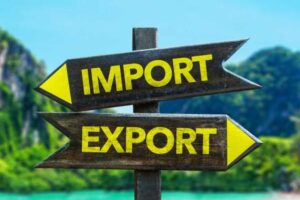
Ukraine’s exports in January-December 2024 increased by 15.5% compared to 2023 to $41.6 billion, while imports increased by 11.3% from $63.5 billion to $70.7 billion, the State Customs Service (SCS) reported in a telegram.
“At the same time, taxable imports amounted to $57.4 billion, which is 81% of the total volume of imported goods. The tax burden per 1 kg of taxable imports in 2024 amounted to $0.51/kg, which is 5% more than in 2023,” the State Customs Service said.
According to the published information, most of the goods were imported to Ukraine from China – $14.4 billion, Poland – $7 billion, and Germany – $5.4 billion. At the same time, Ukraine exported the most goods to Poland – $4.7 billion, Spain – $2.9 billion, and Germany – $2.8 billion.
In the total volume of goods imported in January-December 2024, 65% of the goods were in the category of machinery, equipment and transport – $25 billion (UAH 172.3 billion, or 29% of customs payments, were paid to the budget during customs clearance), chemical products – $11.7 billion (UAH 87.7 billion, or 15% of customs revenues), and fuel and energy – $8.9 billion (UAH 157.6 billion, or 27% of revenues, were paid during customs clearance).
The top three most exported goods from Ukraine are food products – $24.6 billion, metals and metal products – $4.4 billion, and machinery, equipment and transport – $3.5 billion.
The State Customs Service added that in 2024, UAH 311.3 million was paid to the budget during customs clearance of exports of goods subject to export duties.
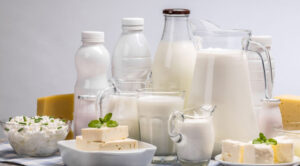
In December 2024, Ukraine imported dairy products (DP), in particular, under headings 0401-0406 UKT FEA (condensed milk and cream, condensed milk and cream, fermented milk products, whey, butter and other fats, cheeses of all kinds and cottage cheese) for $38.5 million, which is a record value for 2022-2024.
According to the Union of Dairy Enterprises of Ukraine (UDEP), the previous maximum (in terms of value) of about $29 million was recorded in January 2022 and December 2023.
Analysts noted that the volume of dairy imports in December 2024 was more than a third higher than in December 2023.
“This was the result of the price situation in the raw milk market in the second half of 2024. From June to December, prices for raw milk of extra quality in Ukraine increased by almost 45% (from less than UAH 14 to more than UAH 20 per kg). This automatically led to a decrease in the competitiveness of domestic dairy products, especially cheese, in the domestic market. As a result, by the end of November, the price of raw milk in Ukraine came close to the European average, exceeding the indicators of some European countries with developed dairy farming,” the industry association explained.
At the same time, the volume of imports of dairy products in December 2024 was more than 2.1 times higher than the corresponding figure for May-June 2024, when Ukraine recorded a positive balance of exports and imports of foreign trade in these goods. According to analysts, the volume of cheese imports increased the most: in December, Ukraine imported more than 5.34 thousand tons of this product worth about $32 million, which is 43% more than the previous maximum in December 2023, when 3.73 thousand tons of cheese were imported. In July-October, the standard indicator of cheese imports to Ukraine amounted to about 3 thousand tons.
Exports of dairy products in December 2024 declined sharply compared to previous months, to their lowest level since March 2024. While the average export of these products in June-November exceeded $20 million, in December it fell below $16 million. Export volumes decreased significantly: TP 0405 (oil and milk fats) amounted to only 44% of the August figure and 68% of the November figure; TP 0406 (cheeses) was at 60% of the October-November figure.
“Imports in value terms in December 2024 were 2.4 times higher than exports, which is a record value for the period of martial law in Ukraine (the previous maximum was recorded in December 2023, when the excess was 2.15 times),” the business association stated.
Experts predict that in January 2025, the negative trend in foreign trade in dairy products will continue, with imports significantly exceeding exports.
“It is obvious that the level of raw milk prices that was formed in early December 2024 causes the loss of competitiveness of domestic dairy products both on foreign and domestic markets. The only way out of this situation is to increase the supply of raw milk, which is possible only through the implementation of effective measures to stimulate investment activity in the dairy sector in Ukraine,” the UMPA summarized.
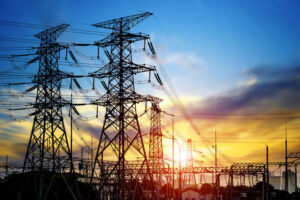
Electricity imports in December 2024 increased by 2.7 times compared to November – up to 433.4 thousand MWh, while exports fell by 6.1 times – to 6.8 thousand MWh, according to data on the Energy Map portal.
Thus, according to Energoreforma’s calculations based on these data, electricity imports in December-2024 exceeded exports by 63.7 times.
Most electricity was imported from Hungary – 152.33 thousand MWh (35.16%). This was followed by Slovakia – 107.08 thousand MWh (24.71%), Poland – 91.98 thousand MWh (21.23%), Romania – 70.78 thousand MWh (16.34%), and Moldova – 11.12 thousand MWh (2.57%).
Hungary also ranks first in terms of exports – 2.99 thousand MWh (43.96%) were supplied there. Romania exported 1.58 thousand MWh (23.17%), Moldova – 1.06 thousand MWh (15.56%), Slovakia – 1.04 thousand MWh (15.33%), Poland – 0.14 thousand MWh (1.99%).
In total, in 2024, electricity imports amounted to 4.44 million MWh, which is 5.5 times higher than in 2023 (806.4 thousand MWh). The largest amount of electricity was imported in June – 858.38 thousand MWh, the smallest in February – 84.09 thousand MWh.
Exports in 2024 amounted to 348.43 thousand MWh, which is almost at the level of 2023 – 366.5 thousand MWh. The largest amount was exported in March – 154.1 thousand MWh, the smallest in September – 0.69 thousand MWh. No exports were made in June-August.
As reported, in November 2024, imports decreased by 9% compared to October – to 165 million kWh, exports to Europe decreased by 31% – to 41.9 thousand MWh.
Despite the overall shortage of electricity caused by Russia’s massive attacks on the power grid, Ukraine has a surplus at certain hours, including when renewable energy generation is active and at night, which allows it to export. An alternative to exports is, in particular, a forced limitation of electricity production from renewable energy sources, which should be compensated by NPC Ukrenergo. Due to the surplus, other types of generation should also reduce their capacity.
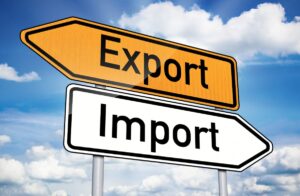
In 2025, Ukraine exported goods worth $41.627 billion, up $5.44 billion, or 15%, compared to 2023, Deputy Minister of Economy and Trade Representative of Ukraine Taras Kachka said.
“In terms of weight, exports amounted to 131.179 million tons. This is 30.8 million tons more, which means an increase of 30.8%. Imports also increased by 8.6% to $69 billion,” he wrote on Facebook on Wednesday.
Kachka specified that imports of electricity increased by 333% to $669 million, batteries by 103% to $950 million, transformers by 108% to $596 million, and UAVs by 77% to $1.2 billion.
“The top imports are petroleum products ($6.8 billion) and “miscellaneous” ($4.5 billion), which are directly related to war and defense. So energy challenges and defense are the main drivers of imports. The drivers are not at all inelastic. A significant reduction in the trade deficit is directly related to the development of the defense industry and the restoration of energy infrastructure,” the trade representative emphasized.
Regarding exports, Kachka noted that due to the opening of navigation in ports, iron ore became the leader in terms of exports – 33.6 million tons, which is 89% more compared to 2023, and in monetary terms, the growth was 58% – up to $ 2.8 billion.
According to him, the second position in terms of volume was taken by corn – 29 million tons, which is 12.3% more than in 2023, but in monetary terms the increase was only 2.3%, up to $5.07 billion.
The Trade Representative emphasized that the situation is the opposite in poultry exports: in physical terms, it increased by only 5.6% to 448.4 thousand tons, but in monetary terms – by 20% to $961 million.
“Among the goods whose exports amounted to more than a billion dollars, I would like to emphasize cable products, whose exports increased by 60% to $1.27 billion,” added Kachka.
According to his data, the growth in export revenues for key metallurgical products was 52% for semi-finished products to $927 million, 38.9% for hot-rolled products to $809 million, 125% for pipes to $590 million, 6.1% for pig iron to $500 million and 19.3% for bars to $156 million.
“Confectionery is a certain indicator of the food processing industry’s performance. There is a 38% increase in revenue from chocolate ($264 million), 26.9% growth for biscuits ($269 million), 15.6% for candy without chocolate ($215 million),” the trade representative also wrote.
In timber processing, he drew attention to the fact that the export of boards (sawn timber) decreased in volume, but still remained above 1 million tons, and in revenue – by 1.2%, to $400.9 million, but glued plywood was exported by 95% more – $125.3 million.
“There are also good indicators in the consumer goods sector. Exports of suits, sets, jackets, trousers, overalls for men amounted to $99 million. This is 646% … more than in 2023. Exports of suits, sets, jackets, dresses, skirts for women amounted to $71.3 million, which is 114.2% growth,” Kachka wrote.
According to him, geographically, Ukrainian exports are becoming more and more EU-centric: exports to the EU grew by 5.9% to $24.7 billion. The top five EU members in terms of exports were Poland ($4.7 billion), Spain ($2.8 billion), Germany ($2.8 billion), the Netherlands ($1.98 billion), and Italy ($1.93 billion). At the same time, exports to Germany grew by 40.5%, while exports to Poland decreased by 1.1%, the trade representative said.
“In general, trade with Poland is declining, as Ukraine imported 6.8% less from it than in 2023. At the same time, Poland continues to be the leader in the supply of goods from the EU – $6.8 billion out of $34.3 billion of total imports from the EU,” Kachka stated.
He noted that trade with Turkey is also declining – by 7.2% in exports and 13.5% in imports.
According to him, imports from China are growing at a significant pace: last year they increased by 37.4% to $14.3 billion.
“And this is the main area of turbulence in our trade policy, because trade with China may undergo radical changes due to the expected measures of the new US administration, which will go viral and lead to the recalibration of tariff rates within the WTO. If the US states that it has the right to revise its tariff rates, Ukraine has even more rights to do so, as we joined the WTO on the basis of unfulfilled expectations of lowering tariffs by other WTO member states,” Kachka emphasized.
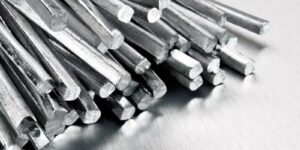
In January-November 2024, Ukraine increased imports of tin and tin products by 17.8% to $2.850 million. Exports of tin during this period increased almost fivefold to $389 thousand, compared to $79 thousand in the same period in 2023. In November, tin imports amounted to $203 thousand, while exports amounted to $40 thousand.
Tin is used mainly as a safe, non-toxic, corrosion-resistant coating in its pure form or in alloys with other metals. The main industrial uses of tin are in white tinplate (tinned iron) for food containers, in solders for electronics, in house pipelines, in bearing alloys, and in coatings made of tin and its alloys. The most important tin alloy is bronze (with copper).